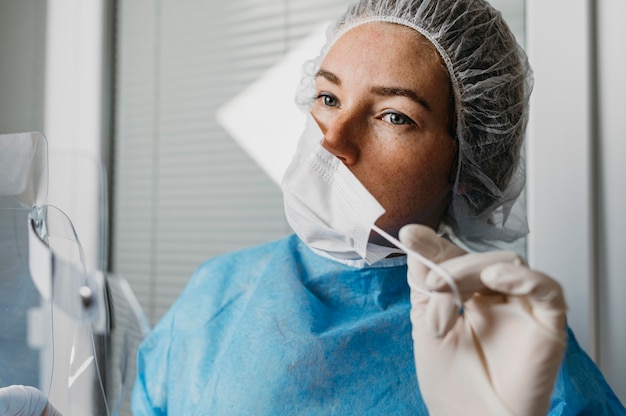
Postoperative recovery is a journey where you regain control of your physical, psychological, and social functions, aiming to get back to your pre-surgery state. Being able to perform daily activities is crucial for your overall psychological well-being.
Surgery is tough on the body, and healing takes time. It’s important to follow your surgeon’s instructions about medications, physical movements, and weight restrictions.
The best ways to heal after a difficult surgery involve a balance of gentle physical movements and plenty of rest. Eating a healthy diet with a bit of extra protein can also help you recover your energy.
In this discussion, we’ll dive into some tips for managing life after a tough surgery and returning to normal.
Following your recovery plan and doctor’s instructions might seem obvious, but many patients often overlook seemingly minor directives. This is a big mistake since every instruction has a crucial reason behind it. When advised not to bathe, avoid certain activities, or lift heavy objects for the first few weeks, it’s essential to follow these orders closely.
Sticking to your recovery plan can prevent unexpected complications, make your home recovery smoother, and help you get back to normal life sooner.
After a difficult surgery, some patients might struggle with sleep. This often happens in the middle of recovery as doctors reduce pain medications and patients become more active during the day.
Sleeping issues can arise from discomfort with sleeping positions and accumulated pain and stress. To get back to a normal sleep cycle, there are some remedies you can try. Taking a relaxing bath can help your body unwind and get ready for sleep. If allowed, doing light exercises or practicing meditation can reduce anxiety.
Using essential oils can be deeply calming and meditative, slowing your breathing and soothing your mind. Listening to calming music or natural sounds can also help you fall asleep.
Getting ready for surgery is scary, but recovery can be even more stressful. Patients often feel depressed, scared, and anxious about their future health. During these times, prayers for recovery can help patients find hope and peace as they start their healing journey.
Prayer can be a form of meditation, helping patients channel positive energy, practice mindfulness, and strengthen the connection between mind and body.
Just as following a recovery plan is important, keeping all follow-up appointments is crucial. Even if your wound is healing well and you feel great, don’t skip these appointments. Doctors use them to check for other issues, such as infections or the need for medication adjustments.
These appointments are also a chance for you to ask questions, share feelings, and voice any concerns.
Many patients lose their appetite after surgery because of nausea, constipation, or a general lack of desire to eat. However, eating nourishing foods and staying hydrated can promote healing, maintain your strength, help wounds heal, and reduce complications.
To boost your energy and fight infections, eat lots of fruits and vegetables rich in vitamins, minerals, fiber, healthy fats, protein, and carbohydrates. These nutrients can help battle fatigue and strengthen your immune system.
Following your surgeon’s instructions, getting rest, and attending your follow-up appointments are vital for your recovery.
While it takes time and patience to recover from surgery, surrounding yourself with friends, practicing meditation, and praying can help make the transition smoother, helping you return to normal life fully recovered.